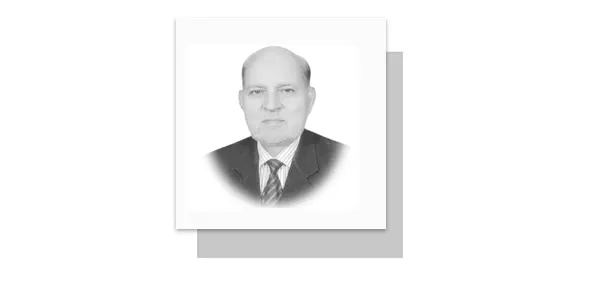AMERICAN political scientist Joseph Nye Jr., defined power as “the ability to influence the behaviour of others to get the desired outcome. Hans Morganthu had stated that every state tries to maximize its power, as power plays a dominant role in the international politics to influence other states’ behaviour. There are three main types of power: hard, soft, and smart. It is hard power, when a country uses economic and military coercion to influence the behaviour of other countries. Soft power is the kind that attracts and convinces, as opposed to coercion, using negotiations. Smart power involves both that strategically applies economic/military coercion, diplomacy and persuasion.
According to an article shared by Denish in “Your Article Library” website, there are a number of elements of national power, with geography, natural resources (raw material and food), population, economic development and industrial capacity, technology and military preparedness as the tangible elements, and ideology, national character, population’s age, education skills and morale, leadership quality, organisational efficiency, media power, quality of government, and diplomacy are the intangible elements. Thus, the national power is defined as the sum of all resources available to a nation in the pursuit of national objectives. In international relations, a state uses the national power to influence the actions of other actors.
As far as Pakistan is concerned, its current short term economic downturn notwithstanding, looking at all attributes of the elements of national power, it is a stronger country with a potential to rise to its true level of national power in a short span of time. According to the UN, the Islamic Republic of Pakistan is the thirty third largest country in terms of area, and as per the world meter, Pakistan is the 5th most populated country in the world with 240 million population in 2023, with 60 per cent youth/workforce.
According to the Wikipedia, Pakistanis the 23rd-largest economy in terms of GDP based on purchasing power parity (PPP). In the agriculture sector, as per the Ayub Agricultural Research Institute, Faisalabad, Pakistan is amongst the world’s top ten producers of wheat, cotton, sugarcane, mango, dates and kinnow (oranges) and is ranked 10th in rice production. Pakistan has a strong industrial base and has also progressed well in the defence production sector.
Strategically, Pakistan is a powerful/important country. The Global Fire Power (GFP) Index denotes Pakistan as a Top 10th world power, having 6th largest armed forces in the world and being the seventh nuclear power, with a potent missile technology, air and naval capabilities, establishing strategic parity with India, and making it totally secure from the Indian threats to its security.
Pakistan’s strategic location at the confluence of South Asia, Central Asia, West Asia, Gulf/Middle Eastern countries, the Indian Ocean, China and Russia’s outreach to the warm waters, (especially after its conflict with Ukraine) makes it a significant player in regional and world affairs, especially as a regional trade transit hub in the context of the CPEC (an economic-oriented project) signed with China, and due to its role in the regional and the world peace.
Pakistan’s economy, if managed efficiently, can pick up its growth to six per cent within a few years time. For example, in 1960s, Pakistan was seen as a model of economic development around the world with 8 per cent average growth rate. Even in 1977, Pakistan’s economic growth rate was 7.4 per cent, in 2004 it was touching 8 per cent, in 2017 it was 6.1 per cent, and, in 2022, it was 6.4 per cent. Therefore, Pakistan has the potential to raise its economic growth speedily based on the CPEC supported modernization of agriculture, industry, IT and tourism, and as a trade transit hub.
In view of the above, Pakistan’s leadership, should accept that all the past governments and heads of major national institutions since 1972 have a part in putting Pakistan in the current economic quagmire by piling up a huge sum of foreign loans and failing to enable it to return those without taking further loans, forget about their past way of inefficient/sluggish/lavish governance, adopt honest, corruption free, efficient and austere ways of governance and prove their mettle by putting Pakistan on the road to political calm, economic development, prosperity and regaining its national power and strategic weight, by strengthening all elements of its national power.
In the above context, Pakistan’s political leadership and heads of important institutions can hold a pre-election dialogue, to reach at an agreement to follow a consensus-based political stability/good governance/good political culture agenda, and to prepare/implement a consensus based economic recovery/progress programme (including the tasks already planned and being implemented by the caretaker government with the support of the armed forces’ leadership), for at least next 15 years.
The political and socio-economic agenda to be prepared/pursued by the Pakistan’s leadership/governments and the heads of country’s important institutions should include, increasing Pakistan’s internal revenues, increasing CPEC-based economic growth rate, GDP and exports, increasing foreign remittances, increasing tourism income, foreign investment and forex reserves, reducing budget/trade deficits and stabilizing Pakistani rupee, to enable Pakistan to return its loans without taking further loans and substantially lowering the inflation/prices for the welfare of the people and further boosting Pakistan’s defence capabilities. This agenda should also include, addressing corruption, ending nepotism, following a potent accountability system, holding free and fair elections, making the national institutions efficient/profitable, improving prosecution/judicial systems, improving education and health facilities, encouraging nationalism, nurturing political tolerance and reducing lust for power to attain/maintain political stability and national harmony.
—The writer is also a former Research Fellow of IPRI and Senior Research Fellow of SVI Islamabad.
Email: [email protected]










